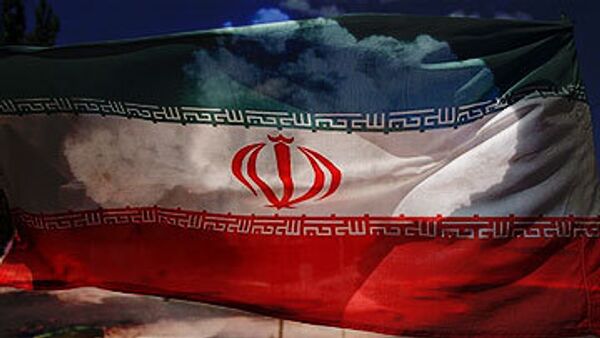Russian President Dmitry Medvedev's criticism of Iran during his recent visit to the United States came as a pleasant surprise for the Western and Israeli press. Medvedev said, "Iran is causing some problems", adding that "the most important thing now is for us to find evidence of what their nuclear program is."
The Russian president went on to say that Iran either ignores the questions addressed to it or makes suggestive statements. Isn't this enough to silence critics who claim that Russia is indulging Iran's nuclear ambitions?
The problem is that some of Russia's partners in the West overestimate how much influence Russia has over Iran. After U.S. President Barack Obama called off plans to deploy elements of the missile defense system in Poland and the Czech Republic on September 17, 2009, U.S. and other Western media outlets started saying that Russia should persuade Iran to disarm in exchange. One Polish newspaper put it somewhat differently: Moscow, it claimed, promised to "sell out" its "ally in the Middle East". When the U.S. concession on its missile shield wasn't followed by any significant movement on the Russian side, many in the Western media began to criticize Moscow for its failure to reciprocate.
As it turns out, all these hopes and grievances are unfounded. Iran has never been "ours" to sell out. Since the Islamic Republic of Iran was founded in 1979, its ideology has been rooted in a rejection of the notion of "spheres of influence" for great powers, especially in Iran.
Russia's relationship with Iran looks good compared to the United States (where Iranian assets have been frozen for over 30 years and which has no Iranian embassy) or some West European countries (which get entangled in diplomatic incidents with Iran from time to time). But it would be absolutely wrong to consider Iran a Russian "ally", let alone a puppet. The only people who believe this are under the spell of the most primitive anti-Russian news sources, who see Russia as the root of all evil, including Iran's nuclear program.
Russia, like the rest of the word, does not want Iran to develop nuclear weapons. But it is not interested in waging a preemptive war against Iran, like the U.S. did in Iraq. George W. Bush launched that war in 2003 under the pretext that Saddam Hussein had nuclear weapons. But no weapons were ever found.
A military conflict in Iran could have terrible consequences for Russia. Unlike Iraq, Iran borders former Soviet republics, and there is a large Azerbaijani Diaspora in Iran. There is no need to get into the problems Russia would face if Azerbaijan were destabilized by a war in Iran.
However, Russia also wants to help the Obama administration save face. Obama has taken a pragmatic approach to Russia. He refuses to cast Russia as an enemy. In fact, relations with Russia are one of the few areas where Obama can point to some progress. On other fronts, Obama hasn't been able to make any headway. His attempts to jump start Israeli-Palestinian peace talks have resulted in a barely concealed conflict with Israeli Prime Minister Benjamin Netanyahu. The deployment of more American forces in Afghanistan has not prevented a very public rift with Afghan President Hamid Karzai. Although Karzai took back his harsh words directed as the United States after a warning from Secretary of State Hillary Clinton, the happy days in his relationship with Washington will never return.
Contrary to what many American and East European "hawks" believe, Russia does not want Obama to fail in his mission to bring peace and stability to the world (not to be confused with Bush's "new world order"). This is exactly how Medvedev's words on Iranian nuclear program should be interpreted. The Russian president expressed his opinion in no uncertain terms: "I would not favor sanctions, however they may become unavoidable at a certain moment in the future."
Last year, Obama addressed the Iranian people with a similar offer - meet your obligations under the Nuclear Non-Proliferation Treaty or at a certain moment I will be forced to take action. So it seems that Russia is not selling anyone out, nor is it inventing anything new. It is simply trying to act in concert with the international community.
The opinions expressed in this article are the author's and do not necessarily represent those of RIA Novosti.
MOSCOW. (RIA Novosti political commentator Dmitry Babich)

